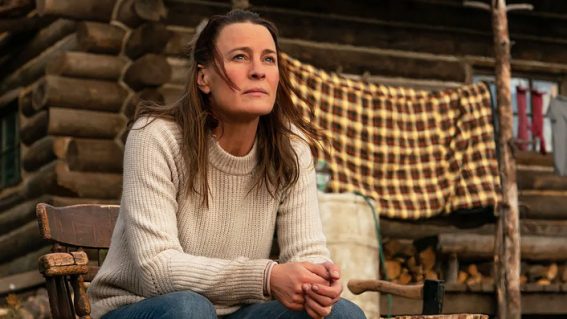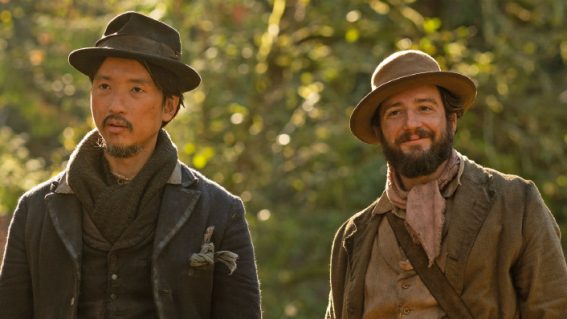Domina is a potent blend of sex, power and revenge in ancient Rome
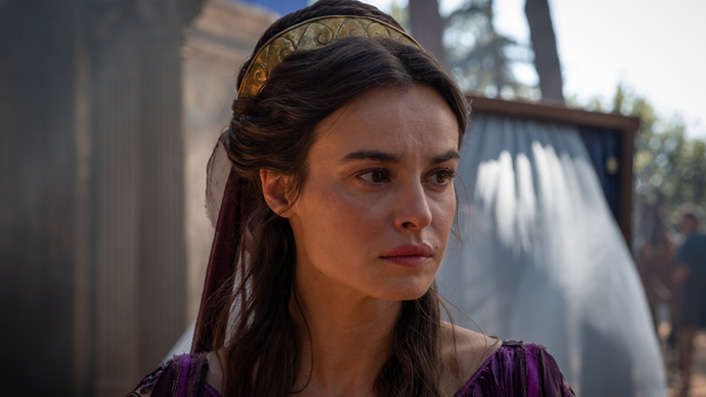
The rise of the first Empress of Rome is chronicled in new series Domina. Now streaming on Stan, it’s very from a dry history lesson, writes Adam Fresco.
You might remember the hit BBC series of the mid-1970s, I Claudius (ok, ask your grandparents). It featured the great Welsh actor Siân Phillips as Livia, the fictionalised version of Livia Drusilla, real-life wife of Augustus Caesar. The drama was a huge hit with audiences and critically acclaimed, serialising the tale of Ancient Roman aristocracy in a potent mix of soap operatics, historical drama, family feuding, power politics and bed-hopping that predated Game of Thrones by four decades.
See also:
* Best new movies and shows on Stan
* All new streaming movies & series
Where I Claudius and the BBCs more recent period drama Rome (a co-production with HBO) focused on historical male characters, Domina throws the spotlight firmly on that old adage, “Behind every great man, there’s an even greater woman”. With its focus firmly on Livia as the central protagonist, the narrative lends an ancient patriarchal tale a much-needed modern spin. Whilst historians and Classics professors may turn purple with apoplectic rage, it’s worth bearing in mind that much of the so-called “history” from the period is based on the accounts of authors who were all (literally “to a man”) male, educated, and pretty much raised to dismiss women as mothers, wives, priestesses or concubines.
As in I Claudius, this Livia is presented as a powerhouse, but as the central character it’s a role that can be far more fleshed out, and has not one but two actors playing her. Nadia Parkes plays the young Livia, and Kasia Smutniak her older incarnation. This switch in lead actors creates an initially distracting change in Livia’s accent in episode three, but that’s a bump in the otherwise smooth Roman road to which you quickly adapt.
The first episode opens with a bang. Literally. A young Livia bashes a man’s head in with a rock, as we hear her for the first time, informing us via voiceover that: “The first rule of power is survival”. It’s a scene quickly establishing the cruel and brutal period in which Domina is set—a time in which violence was often the only way to survive. But the show is far from ultra-violent, the shocks and sex scenes are subdued, saving its thunder for storyline rather than outlandish gore, because this Livia is no brute. She is resourceful, intelligent, and cunning.
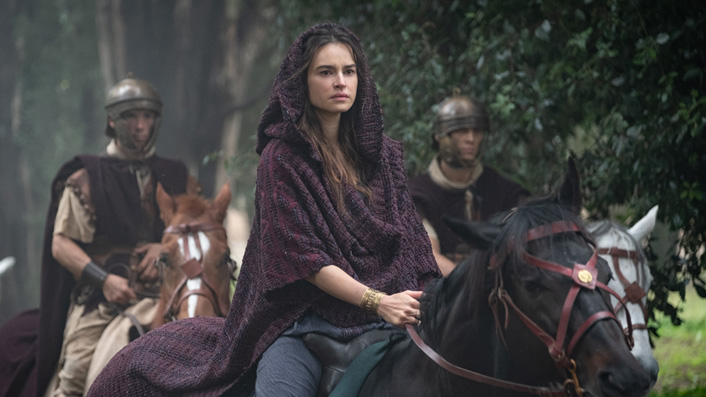
Watching her rise from victimised child-bride to manipulative matriarch makes for fun viewing that’s far from a dry history lesson, instead embracing a blend of drama, melodrama, seriousness and soap operatics. That’s not necessarily a bad thing. Soap opera can make for highly addictive television, and what Domina lacks in sophisticated dramatic chops and cinematic pretensions it makes up for in solid performances, and a narrative that moves at a steady pace.
There’s no filler here. We are thrown straight into Livia’s tale, as she quickly rises from wealthy man’s daughter, falls to impoverished outlaw status, and claws her way back to the top of the political heap—all in just the opening two episodes.
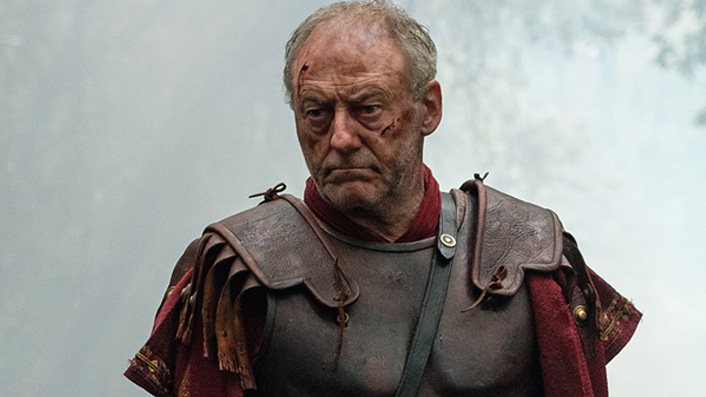
Livia’s rise to power is aided by support from Game of Thrones alumni Liam Cunningham as Livia’s father, Livius. Cunningham revels in the crucial role of a man who goes against the grain by teaching his daughter to use her brain, rather than rely on beauty. At one point Livia’s far older, and far less intelligent, husband-to-be Nero, complains: “Her father made a mistake of educating her like a man”.
It’s a complaint he and anyone who crosses Livia would do well to remember. For Livia has learnt from her father not just how to be an honourable member of one of the great families of Rome, but also how to manoeuvre through the cut-throat world of Roman politics and power play.
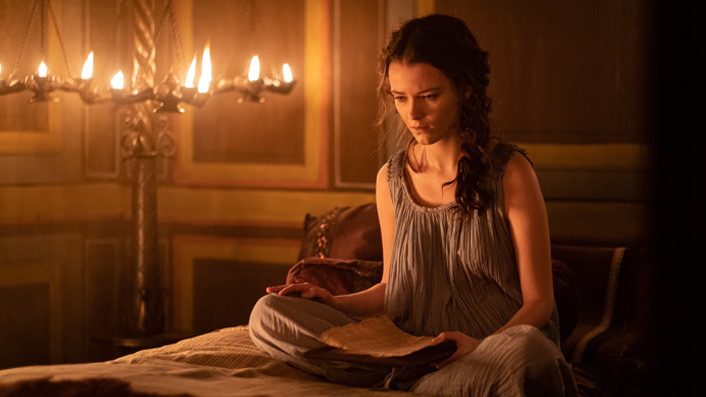
Along with her father, Livia’s African slave Antigone (Colette Dalal Tchantcho) teaches her survival skills, ranging from the secrets of sex to childbirth, through to poison as an efficient means to dispatch enemies. And Livia has plenty of enemies to thwart along the way, including a guest appearance in episode two from Isabella Rossellini, as brothel madam Balbina, a role played with lascivious gusto by Rossellini, in full Blue Velvet femme fatale mode.
In a bid to regain the land and property, power and wealth lost in the first episode, a pregnant Livia plots to divorce her first husband, Nero, and marry Julius Caesar’s son, Gaius (Matthew McNulty). They seem a perfect match, with the young Gaius driven to avenge his assassinated father, and Livia to avenge hers. The only problem is that Caesar’s son is the man responsible for the death of Livia’s father. But then, as Gaius tells Livia: “Money, power, family – they’re the only things that matter.”
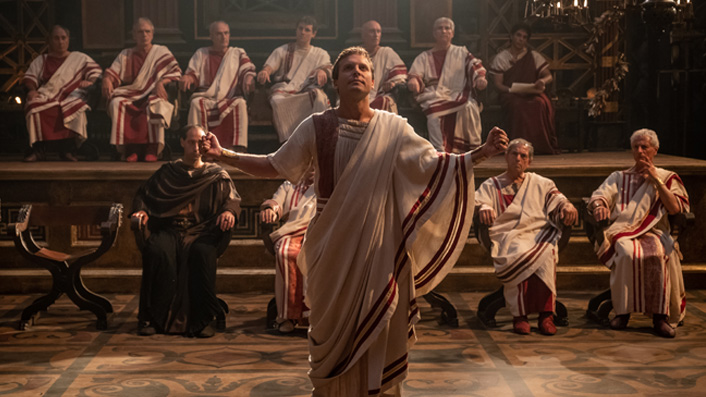
It’s advice Livia knows only too well as she grows from a naive youngster, to emerge from the aftermath of Julius Caesar’s assassination in 44 BC, to eventually become first Empress of Rome. As much villain as heroine, Livia’s strength lies in her unwillingness to be subjugated by men, and her ability to match all in terms of seduction, strategy, treachery, double-dealing, vengeance and outright murder.
Complexity of unfamiliar Roman names aside, the plot boils down the complex machinations of Ancient Roman political intrigue into a pretty straight-forward narrative. Lead series director, Australian filmmaker Claire McCarthy, lends proceedings a solid look and pace, embracing a modern spin on an old tale often told, delivering an entertaining look at Livia’s rise to power, as she seeks to avenge her father’s death and place her children in positions of unassailable power amidst a brutal, male-dominated, Roman regime.
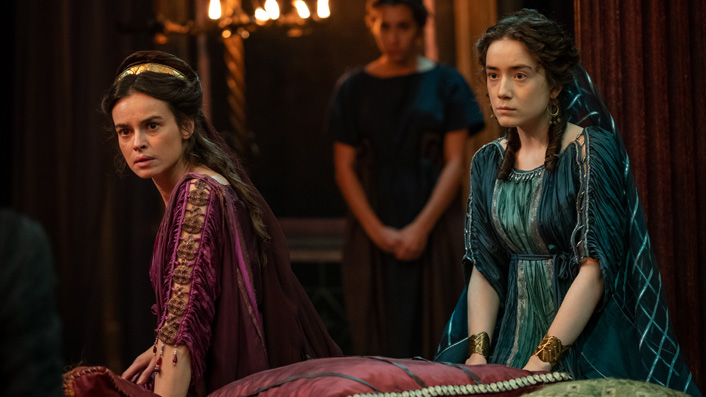
Those seeking massive battles on a par with Game of Thrones’ celebrated combat scenes, or the impressive sweep of Gladiator and its vision of a teeming ancient world won’t find it here. Instead, Domina keeps its focus on the personal, replacing the epic with the individual, preferring small moments of intimacy and intrigue over bloody battles and ancient panoramas. I got to preview three episodes, and with five to go in this eight-part series, I’m keen to follow Livia on her journey, in this modern take on ancient family politics, political power, sexual scandal, ruthless ambition and bloody revenge.













